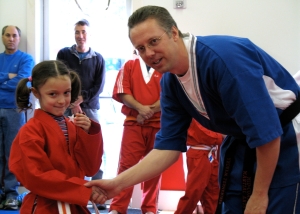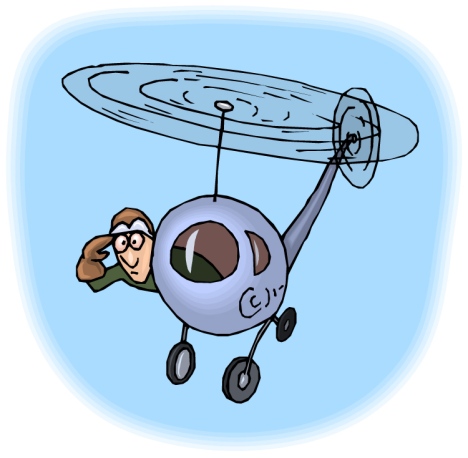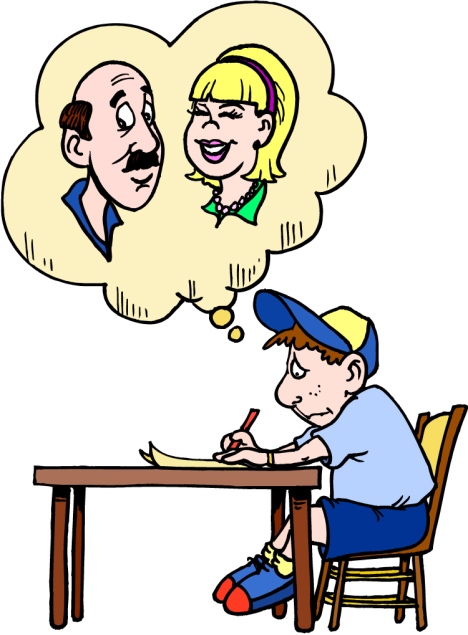Congratulations to Platinum Member Powerful Words Member School, Midcoast Martial Arts, for doing extraordinary work with young people in Camden, Maine. Featured on Good Morning America for helping Camden get their staggering suicide and drug numbers down, Midcoast is helping to do their part by teaching children that they are worthwhile, that they can achieve, and of course, that they can stay engaged with people who care like the teachers over at Midcoast Martial Arts.
Drug and alcohol abuse reached crisis levels in 2001, when Maine’s teen suicide rate was 50 percent higher than the national average.
Along with Powerful Words, Midcoast is part of a program called Communities That Care, that surveys students starting in the fifth grade to determine their risk factors. The program helps to rally teachers, such as instructor Mr. Andrew Lesmerisis, owner and chief instructor at Midcoast, to take an active role in helping his students and the children of Camden, to thrive.
“We look to provide opportunities for kids to learn skills (martial arts, character. leadership) and make sure to recognize their accomplishments (belts, POWerful Words Stripes, Patches, Cards, etc.) especially when they go out into the community. This builds a level of trust for the kids/teens that there are caring adults that want to see them be successful. This leads to the students becoming bonded to the school where we try to set clear standards of behavior (POWerful Words plays a huge role here!) which due to the bonding is more likely to take hold and lead them to be healthy and more active in the community in positive ways.” –Andrew Lesmerisis
The researchers at National Institute on Drug Abuse (NIDA), part of National Institutes of Health (NIH) have followed Camden along with 11 other towns who implememted the Communities that Care philosophy to get teachers, instructors, clergy, and other adults and mentors involved in their youth– and compared them to 12 communities that didn’t use this approach.
The results were dramatic: By the eighth grade, students in towns where the CTC was in place were more than 30 percent less like to take up alcohol and tobacco and 25 percent less likely to engage in delinquency than in those where it was not.
The program is really, simply, a philosophy.
The results of this trial confirm that tools do exist that give communities the power to reduce risk for multiple problem behaviors across a community. What makes Communities That Care unique is that it enables communities to identify their own special issues so they can hand pick the right prevention programs. –Dr. Nora Volkow, NIDA Director
Because it’s a philosophy rather than a set canned course of action, it allows Mr. Lesmerisis and other adults in town to customize how they convery that philosophy. We are so proud to be part of Mr. Lesmerisis’ and MidCoast Martial Arts’ approach to helping Camden’s young people.
For Mr. Lesmerisis, Powerful Words fit in with the CTC philosophy.
POWerful Words fits in perfectly. It helps us send a clear message about healthy beliefs and standards. Not only do we talk about it in class, it’s posted all over the school (banners, challenge sheets) but it also becomes a method for them to use the skills in a positive (pro-social) way. For example, last month with Citizenship we are putting the Words into Action by doing and Kick/Grapple Thon to raise money for Five Town Communities That Care. They get to take all those Citizenship skills and knowledge and put it into practice in a way that benefits the community. We (Mid-Coast Martial Arts & Five Town CTC) make sure that the students get recognized with thank you cards and press releases, not to mention claps and cheers at the ceremony itself.
The BEST part of both CTC and POWerful Words to me as an instructor and school owner is that I don’t have to guess or feel or assume or hope that we are helping kids to be healthy, we KNOW it!
They really are helping their students! The amazing results were published in the Sept. 7 Archives of Pediatrics and Adolescent Medicine. They demonstrated that these types of community-based coalitions using customized evidence-based approaches can indeed help prevent the early initiation of substance abuse and delinquent behavior among young people.
*Binge Drinking by 10th grade students*(more than five drinks in a row in last two weeks):
2004 – 29%
2008 – 15%
*Marijuana Use* (Ever Used) by 8th grade students
2004 – 9%
2008 – 2%
*Cigarette Use* (Ever Used) by 8th grade students
2004 – 10%
2008 – 1%
*Drunk or High At School *8th grade
2004 – 11%
2008 – 5%
*Opportunities for Pro-Social Involvement in the Community* (Higher is Better)
2004 – 46%
2008 – 63%
*Recognition for Pro Social Involvement *(Higher is better)
2004 – 38%
2008 – 54%
We are so proud of the work you’ve done, MidCoast– not only for the town, but for our world. Every child inspired and saved from drugs and suicide is another adult who thrives. Congratulations on your amazing work.

Filed under: Character in Action, children, Dr. Robyn Silverman, Health, Leadership, Media, Mental Health, Teens | Tagged: Communities that care, Dr. Robyn Silverman, Drugs, Midcoast Martial Arts, NIH, Powerful Words character Development, Prevention, Suicide prevention | Leave a comment »




























